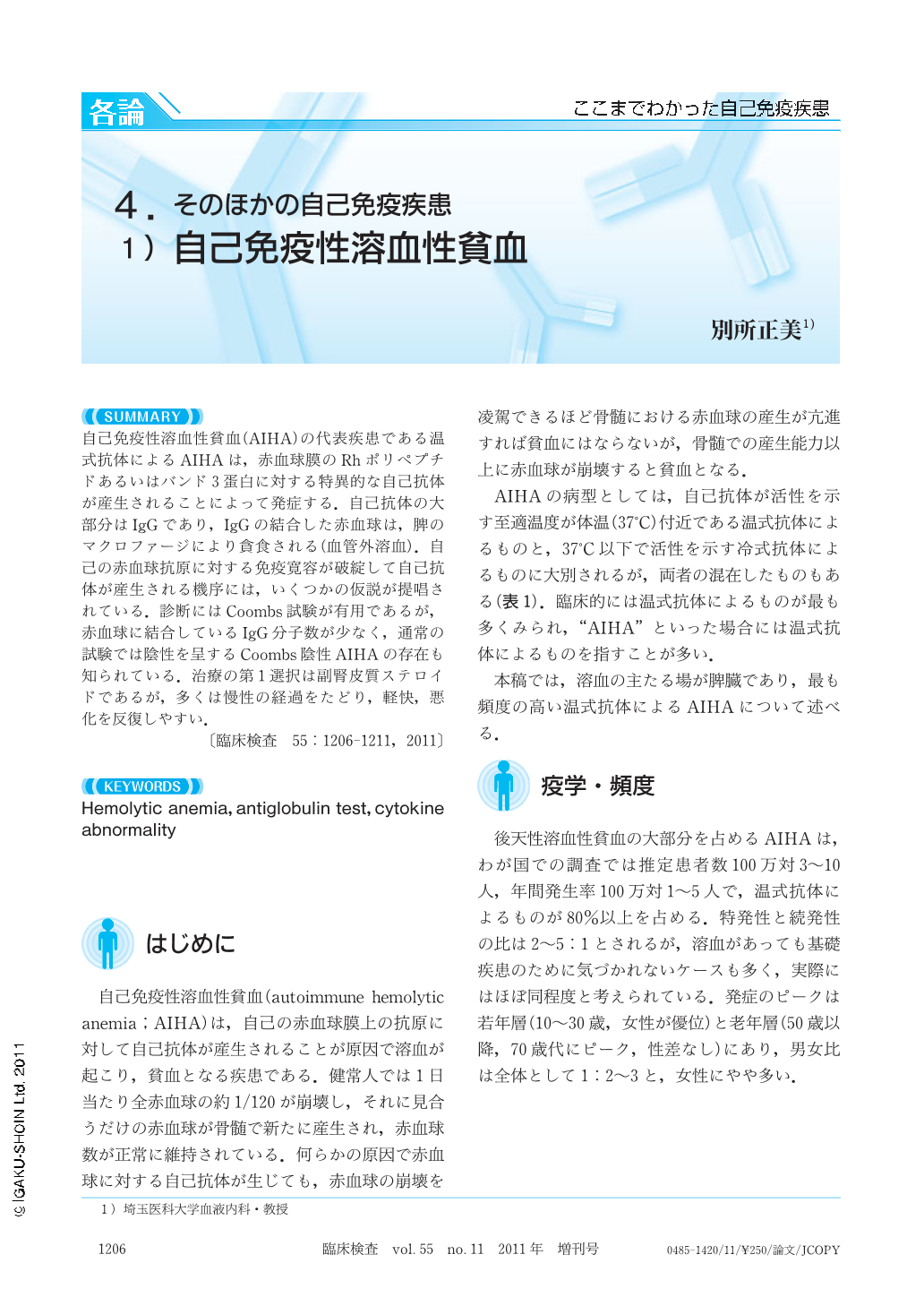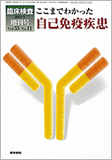Japanese
English
- 有料閲覧
- Abstract 文献概要
- 1ページ目 Look Inside
- 参考文献 Reference
自己免疫性溶血性貧血(AIHA)の代表疾患である温式抗体によるAIHAは,赤血球膜のRhポリペプチドあるいはバンド3蛋白に対する特異的な自己抗体が産生されることによって発症する.自己抗体の大部分はIgGであり,IgGの結合した赤血球は,脾のマクロファージにより貪食される(血管外溶血).自己の赤血球抗原に対する免疫寛容が破綻して自己抗体が産生される機序には,いくつかの仮説が提唱されている.診断にはCoombs試験が有用であるが,赤血球に結合しているIgG分子数が少なく,通常の試験では陰性を呈するCoombs陰性AIHAの存在も知られている.治療の第1選択は副腎皮質ステロイドであるが,多くは慢性の経過をたどり,軽快,悪化を反復しやすい.
Warm antibody autoimmune hemolytic anemia (AIHA), a type of AIHA, is induced by the antoantibodies which possess relatively high affinity for Rh polypeptide or Band 3 protein of the red blood cell (RBC) membrane. The autoantibodies are predominantly IgG globulins, and autoantibody-coated RBCs are destructed by sequestration and phagocytosis in the spleen (extravascular hemolysis). Recent studies on animal and human AIHA explain the mechanisms that produce a loss of immunologic torelance against erythrocyte self antigen. The diagnosis of AIHA depends on the demonstration of immunoglobulin and/or complement proteins bound to RBCs by the antiglobulin test (DAT) or Direct Coombs Test. A subset of patients have the usual features of AIHA but a negative DAT. Small quantities of cell-bound IgG molecules are identified in these DAT-negative AIHA patients. AIHA responds well to glucocorticoids, but the course is capricious, characterized by relapses and remissions.

Copyright © 2011, Igaku-Shoin Ltd. All rights reserved.


